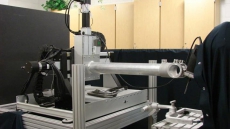Parents please take note! If your son becomes overweight during his teenage years then he is 80 percent more likely to have a stroke in adulthood, warns a study.
A findings revealed that men with excessive BMI increase from childhood to age 20 had a higher risk of stroke than those with average BMI increase. For every two-point increase in BMI, men were 20 percent more likely to have a stroke.
Men, who were overweight at both time points, were 70 percent more likely to have a stroke. Of the 990 people in this group, 36 had a stroke, or 3.6 percent.
Study author Jenny M. Kindblom from the University of Gothenburg in Sweden said that the stroke rate has been increasing among young adults even while it has been decreasing for older people.
Kindblom added that it has occurred at the same time as the obesity epidemic.
The team analysed 37,669 Swedish men whose body mass index (BMI) was measured at age eight and again at age 20.

From age 20, they were followed for an average of 38 years and the results revealed that during that time, 918 men had strokes.
Men, who were normal weight at age 8 but overweight at age 20, were 80 percent more likely to have a stroke. Of the 1,800 in this group, 67 had a stroke, or 3.7 percent.
Kindblom noted that the study was observational and does not prove that the increase in BMI causes the increase in stroke, rather it just shows the association.
The study also found that people with high increases in BMI from age 8 to age 20 also were more likely to have high blood pressure as adults.
People with high blood pressure are more likely to have stroke.
The research was published in online journal of Neurology





